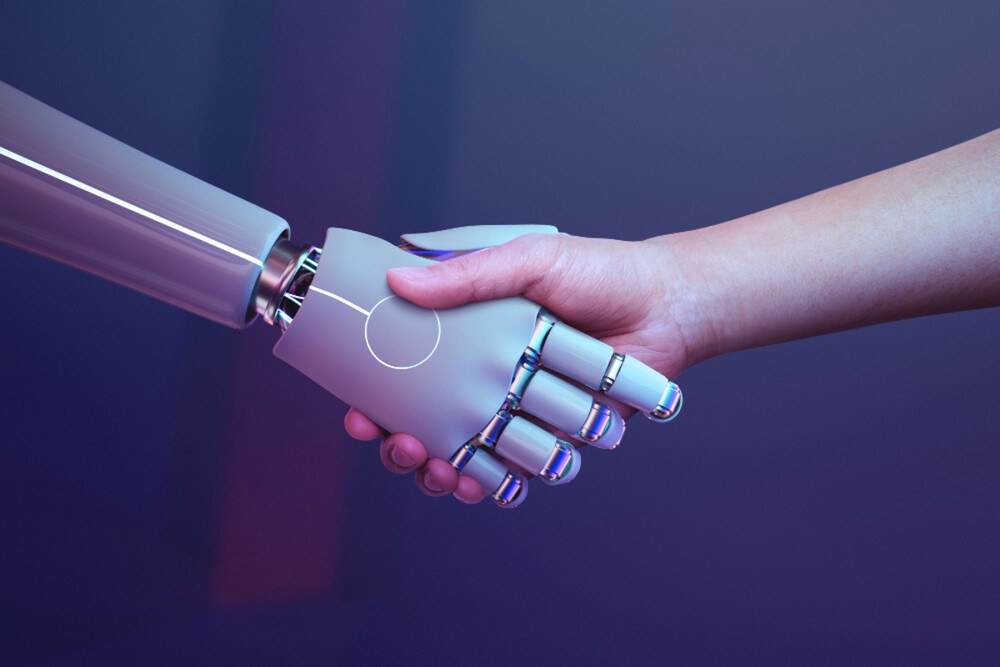In the ever-evolving world of cybersecurity, finding the perfect balance between security and user experience is a constant challenge. Traditional authentication methods such as passwords and biometrics have their limitations, leading researchers and developers to explore new horizons. Among these innovations, Artificial Intelligence (AI) authentication stands out as a promising frontier, offering a blend of security, convenience, and adaptability. Let's delve into the realm of AI authentication and uncover its potential to revolutionize digital identity verification.
Understanding AI Authentication:
AI authentication utilizes machine learning algorithms to analyze and verify user behavior, patterns, and characteristics. Unlike static authentication methods, which rely on fixed credentials or physical attributes, AI authentication dynamically adapts to evolving user interactions, making it more resilient to unauthorized access attempts.
The Mechanics Behind AI Authentication:
AI authentication systems employ various techniques to verify user identity:
-
Behavioral Biometrics: These systems analyze patterns in user behavior such as typing speed, mouse movements, and device usage to create unique biometric profiles. These profiles serve as digital fingerprints, enabling continuous authentication based on real-time behavioral cues.
-
Contextual Analysis: AI algorithms consider contextual factors like device location, network environment, and time of access to assess the legitimacy of login attempts. Deviations from established patterns trigger additional authentication measures, enhancing security without inconveniencing legitimate users.
-
Anomaly Detection: AI-powered anomaly detection algorithms identify unusual or suspicious behavior indicative of fraudulent activity. By continuously monitoring user interactions and comparing them against baseline norms, these systems can detect and mitigate security threats in real-time.
Advantages of AI Authentication:
-
Enhanced Security: AI authentication offers advanced threat detection capabilities, enabling organizations to detect and respond to security incidents more effectively.
-
Frictionless User Experience: By seamlessly authenticating users based on their behavior and context, AI authentication eliminates the need for intrusive security measures such as frequent password resets or multi-factor authentication prompts.
-
Adaptability: AI authentication systems continuously learn and evolve based on user interactions, ensuring adaptive and resilient security measures in the face of emerging threats.
-
Reduced Dependency on Static Credentials: AI authentication reduces reliance on static credentials like passwords, mitigating the risk of credential-based attacks such as phishing and brute force attacks.
Challenges and Considerations:
Despite its potential, AI authentication poses some challenges:
-
Privacy Concerns: AI authentication systems collect and analyze vast amounts of user data, raising concerns about privacy and data protection. Organizations must prioritize transparency and user consent in their AI authentication initiatives.
-
Algorithmic Bias: AI algorithms may exhibit biases based on the data they are trained on, leading to unfair or discriminatory outcomes. Ensuring diversity and representativeness in training data is essential to mitigate algorithmic bias in AI authentication systems.
-
Adversarial Attacks: AI authentication systems are susceptible to adversarial attacks, where malicious actors attempt to deceive or manipulate the underlying algorithms. Robust defenses, such as adversarial training and anomaly detection, are necessary to thwart such attacks.
Embracing the Future of Authentication:
As organizations strive to balance security and user experience in their digital initiatives, AI authentication emerges as a transformative solution that holds the potential to redefine the authentication landscape. By harnessing the power of machine learning and behavioral analysis, AI authentication offers a dynamic and adaptive approach to identity verification, paving the way for a more secure and seamless digital future. As we continue to unlock the possibilities of AI-driven innovation, the journey towards frictionless yet robust authentication experiences has only just begun.


No comments yet